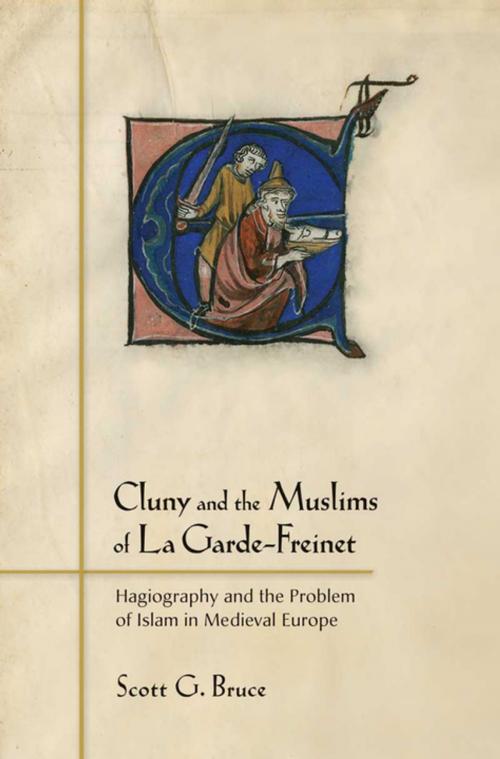Cluny and the Muslims of La Garde-Freinet
Hagiography and the Problem of Islam in Medieval Europe
Nonfiction, History, Medieval, Religion & Spirituality, Christianity, Church| Author: | Scott G. Bruce | ISBN: | 9781501700910 |
| Publisher: | Cornell University Press | Publication: | November 5, 2015 |
| Imprint: | Cornell University Press | Language: | English |
| Author: | Scott G. Bruce |
| ISBN: | 9781501700910 |
| Publisher: | Cornell University Press |
| Publication: | November 5, 2015 |
| Imprint: | Cornell University Press |
| Language: | English |
In the summer of 972 a group of Muslim brigands based in the south of France near La Garde-Freinet abducted the abbot of Cluny as he and his entourage crossed the Alps en route from Rome to Burgundy. Ultimately, the abbot was set free and returned home safely, but the audacity of this abduction outraged Christian leaders and galvanized the will of local lords. Shortly thereafter, Count William of Arles marshaled an army and succeeded in wiping out the Muslim stronghold. In Cluny and the Muslims of La Garde-Freinet, Scott G. Bruce uses this extraordinary incident, largely overlooked by contemporary scholars, to examine Christian perceptions of Islam in the Middle Ages.
The monks of Cluny kept the tale of their abbot’s abduction alive over the next century in hagiographical works and chronicles written to promote his sanctity. Bruce explores the telling and retelling of this story, focusing particularly on the representation of Islam in each account, and how that representation changed over time. The culminating figure in this study is Peter the Venerable, one of Europe’s leading intellectuals and abbot of Cluny from 1122 to 1156. Remembered today largely for his views of Islam, Peter commissioned Latin translations of Muslim historical and devotional texts including the Qur’an. As Bruce shows, Peter’s thinking on Islam had its roots in the hagiographical tradition of the abduction at La Garde-Freinet. In fact, Peter drew from the stories as he crafted a "Muslim policy" relevant to the mid-twelfth century, a time of great anxiety about Islam in the aftermath of the failed Second Crusade. Compellingly written, Cluny and the Muslims of La Garde-Freinet provides us with an unparalleled opportunity to examine Christian perceptions of Islam in the Crusading era.
In the summer of 972 a group of Muslim brigands based in the south of France near La Garde-Freinet abducted the abbot of Cluny as he and his entourage crossed the Alps en route from Rome to Burgundy. Ultimately, the abbot was set free and returned home safely, but the audacity of this abduction outraged Christian leaders and galvanized the will of local lords. Shortly thereafter, Count William of Arles marshaled an army and succeeded in wiping out the Muslim stronghold. In Cluny and the Muslims of La Garde-Freinet, Scott G. Bruce uses this extraordinary incident, largely overlooked by contemporary scholars, to examine Christian perceptions of Islam in the Middle Ages.
The monks of Cluny kept the tale of their abbot’s abduction alive over the next century in hagiographical works and chronicles written to promote his sanctity. Bruce explores the telling and retelling of this story, focusing particularly on the representation of Islam in each account, and how that representation changed over time. The culminating figure in this study is Peter the Venerable, one of Europe’s leading intellectuals and abbot of Cluny from 1122 to 1156. Remembered today largely for his views of Islam, Peter commissioned Latin translations of Muslim historical and devotional texts including the Qur’an. As Bruce shows, Peter’s thinking on Islam had its roots in the hagiographical tradition of the abduction at La Garde-Freinet. In fact, Peter drew from the stories as he crafted a "Muslim policy" relevant to the mid-twelfth century, a time of great anxiety about Islam in the aftermath of the failed Second Crusade. Compellingly written, Cluny and the Muslims of La Garde-Freinet provides us with an unparalleled opportunity to examine Christian perceptions of Islam in the Crusading era.















